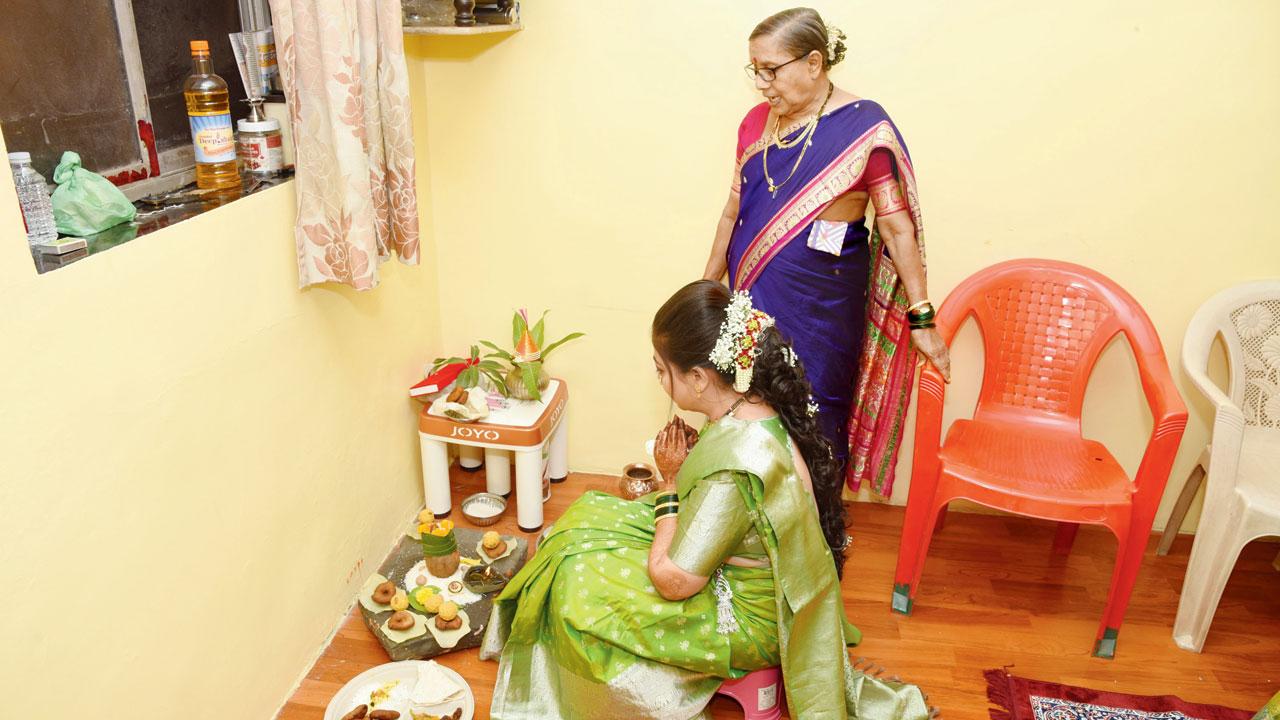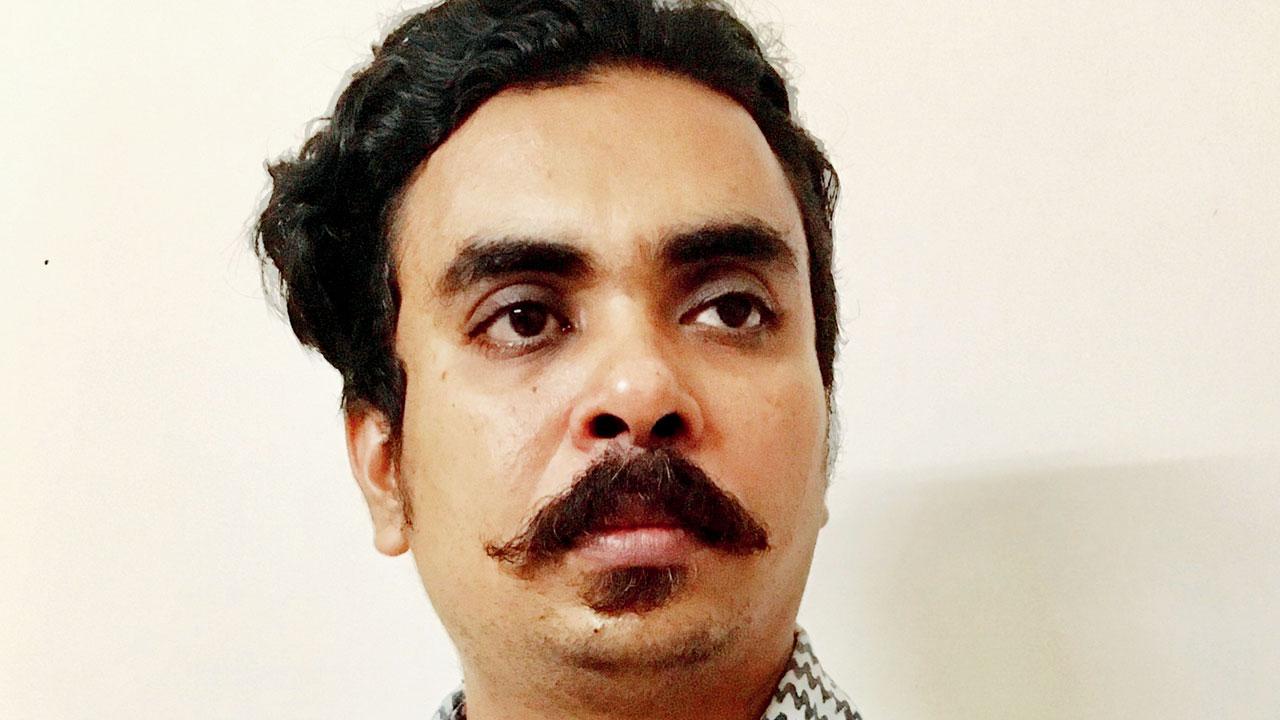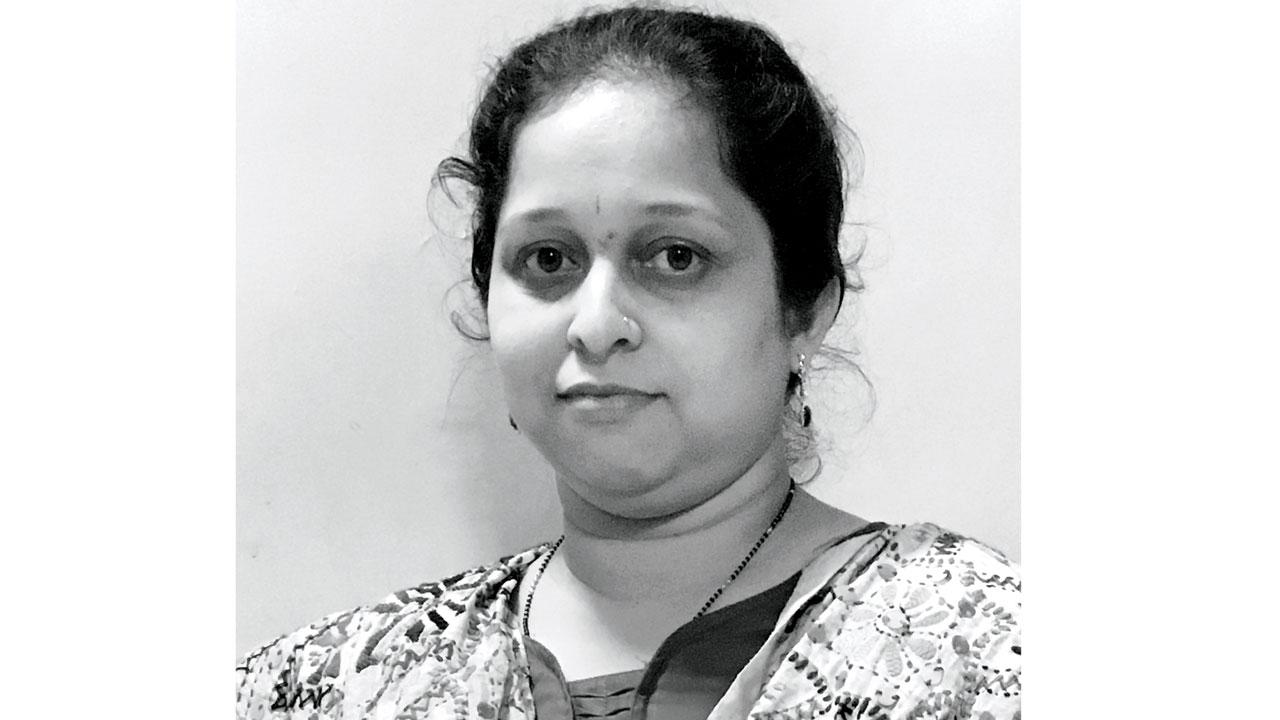Meet a septuagenarian who is part of the dwindling tribe of dhavlarines or singers who traditionally solemnise rituals in this indigenous fisherfolk community

Dhavlarine Sau Pushpalata Bhagirath Thanekar solemnises rituals. Pics Courtesy/Umesh Thanekar
Long before Brahmanical influences crept into the community, wedding rituals among the Kolis would play out in sync with the melodious songs of dhavlas and dhavlarines. These songsters and songstresses — a dwindling tribe today — knew a song for every occasion — be it muhurtamedh or the beginning of weddings, the haldi ceremony, or shimga (during Holi), when a newly wedded bride and groom are invited to the former’s mother’s home with much fanfare. Dhavlarine Sau Pushpalata Bhagirath Thanekar, a septuagenarian, is the last of her clan today in Chendani Koliwada, Thane, where she resides, sings and holds on to the fading tradition. Twenty-six dhavla songs, which Thanekar still sings and remembers, have now been compiled by the Tandel Fund of Archives (TFA) in the third edition of the publication series titled आय माझी कोनाला पावली? (Aai Majhi Konala Pavali?; a title referring to the popular Koligeet dedicated to goddess Ekvira).
ADVERTISEMENT

Led by Parag Kamal Kashinath Tandel and Kadambari Anjali Mahesh Koli, TFA is a socially engaged archive and ethnographic pop-up museum of the Koli community. The Tandel Fund was founded by the Tandel family in Chendani Koliwada at the beginning of the 14th century to support the community during economic crises; TFA is an archival extension of the initiative. The publication series is part of their Estuaries of Waning Sounds project, which seeks to explore the gradual loss of the fading Son Koli language and maps anecdotes from over 250 Koli villages in and around Mumbai.
Songs of tradition
The book, which releases this month, is the first-of-its-kind documentation of dhavla songs, and features handwritten verses by Thanekar. These folk songs are the oldest song tradition among the Kolis, and are essentially short poems explaining different rituals, primarily weddings. Kadambari, who has been researching since 2019, shares that the origins of the songs are untraceable, as they have been handed down orally across generations. Before the community started adopting Brahmanical practices like the presence of priests at rituals, dhavlas and dhavlarines would sing to solemnise rituals.

Parag Kamal Kashinath Tandel. Pic Courtesy/TARQ
“During our research, we found that dhavla poetry has been mentioned in a 12th century Sanskrit text, Manasollasa,” she tells us. Kadambari recollects the presence of dhavlarines at weddings, and even births and deaths, while growing up. “Today, a handful of these singers remain; Thanekar is the only one in our Koliwada,” she adds.
The book, dedicated to the community, documents songs that are written in Devanagari and English scripts to convey the aural flow. There are songs for every ceremony, especially in the case of weddings. Typically invoking the kuldevta or local god, the songs serve as a mode of instruction to carry out different rituals. For instance, for the pattapujan ceremony, one of the songs directs the bride’s mother to place a coconut and flowers on a stone grinder to worship the goddess, symbolising how her daughter has bloomed like a flower and is ready for marriage.
Devotion to community
Like other dhavlarines, Thanekar picked up the verses while listening to her mother and aunt humming the songs when she was growing up. Dhavla songs aren’t restricted to specific men and women, informs Kadambari. “You know how you start memorising songs while listening to music? Anyone can learn these songs,” explains Kadambari.

Kadambari Anjali Mahesh Koli
After her mother passed away, Thanekar found a guru in Waman Bhaskar Koli, who sang at ceremonies in Chendani Koliwada, too. The songstress, who is a BA graduate, also conducted free tuition classes for students in the community. Even now, families from other koliwadas in Mulund, Airoli and Vikhroli invite Thanekar to solemnise marriages, adds Kadambari. “Dhavlas or dhavlarines didn’t sing for money; if someone wished to gift them something, they did. Thanekar continues to sing, not for money but because of her dedication towards the community,” Kadambari signs off.
Log on to: @tandelfundofarchive on Instagram
 Subscribe today by clicking the link and stay updated with the latest news!" Click here!
Subscribe today by clicking the link and stay updated with the latest news!" Click here!







